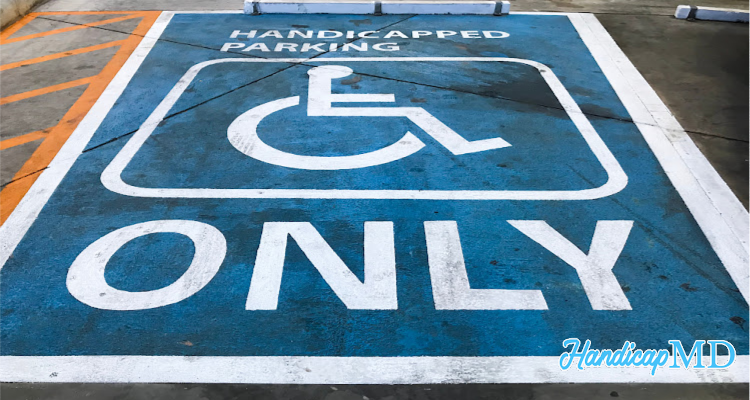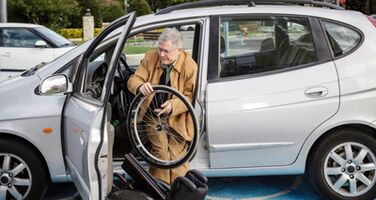
Understanding the Eligibility Criteria for a Handicap Placard in Nebraska: A Comprehensive Guide
Introduction
Imagine a world where a simple trip to the grocery store becomes a significant challenge. For individuals with mobility issues, this is a daily reality. Handicap passes are a crucial resource, providing accessibility and convenience. In this article, we delve into the eligibility criteria for obtaining a handicap placard in Nebraska, shedding light on the process and its importance.
Eligibility Criteria Unveiled
Understanding the eligibility criteria for a disability permit in Nebraska is paramount for those seeking this essential accommodation. Let's delve into the intricate details:
Qualifying Medical Conditions
Navigating eligibility begins with understanding the medical conditions that qualify for a handicap permit. Individuals with mobility challenges, chronic illnesses, or visual impairments may be eligible.
Mobility Challenges
Individuals facing difficulties in walking or requiring assistive devices fall under this category. The severity of the impairment is a key determinant.
Chronic Illnesses
Certain chronic illnesses necessitate closer parking access. Conditions like arthritis or heart-related issues may make individuals eligible for a disability pass.
Visual Impairments
Individuals with visual impairments that substantially limit their ability to navigate public spaces may also qualify for a permit.
The Journey of Acquiring a Handicap Placard
Understanding the Basics: Obtaining a Nebraska handicap placard involves meeting specific criteria. To start, individuals with mobility impairments, visual limitations, or conditions affecting stamina qualify. The process centers around enhancing accessibility for those facing daily challenges.
Medical Certification Requirements: Eligibility often hinges on a medical professional's certification. This includes physicians, nurse practitioners, or physician assistants affirming the applicant's need for accessible parking due to a qualifying condition.
Temporary vs. Permanent Placards: Nebraska offers both temporary and permanent permits. Temporary placards suit short-term mobility issues, while permanent ones cater to long-term conditions. Ensure your application aligns with the appropriate category.
Application Procedures: Understanding the application process is crucial. Submitting a completed Application for Handicapped Parking Privileges form, available on the Nebraska Department of Motor Vehicles website, initiates the journey. Don't forget the medical certification to validate your need.
Navigating the DMV: Visiting the Department of Motor Vehicles (DMV) is a key step. Present your completed application form, medical certification, and identification. The DMV staff will guide you through the submission process, ensuring accuracy.
Approval Timelines: Understanding approval timelines adds clarity. Typically, Nebraska processes applications within 14 days. Keep this timeframe in mind to plan accordingly, especially if your need for a permit is urgent.
Accessible Parking Etiquette: Once you've obtained your disability pass, embrace responsible parking. Familiarize yourself with accessible disabled parking etiquette to ensure a positive experience for everyone. Respect the designated spaces and time limits.
Renewal and Replacement Guidelines: Stay informed about renewal and replacement procedures. Temporary placards are valid for up to six months, while permanent ones necessitate renewal every six years. Lost or damaged placards require prompt replacement through the DMV.
Understanding the Eligibility Criteria for a Handicap Placard in Nebraska
This section aims to provide further insights into the specific criteria individuals must meet to qualify for a disability permit in NE:
Age Restrictions: There are no age restrictions for obtaining a disability permit, emphasizing that individuals of all ages facing mobility challenges or qualifying conditions are eligible.
Temporary vs. Permanent Placards: Nebraska offers both temporary and permanent passes, each with distinct eligibility criteria. Temporary ones are issued for a specific duration, while permanent ones cater to long-term needs.
Renewal Process: Understanding the renewal process is vital. Temporary permits can be renewed for a specified period, whereas permanent ones may require re-evaluation of medical eligibility.
Frequently Asked Questions (FAQs)
Who Determines Eligibility for a Disability Permit in NE?
The eligibility determination is made by licensed healthcare professionals who assess the nature and severity of the individual's condition.
Can I Apply for a Handicap Placard on Behalf of Someone Else?
Yes, individuals can apply on behalf of a qualifying person, provided they have the necessary medical certification and documentation.
Is the Disability Permit Valid in Other States?
Yes, permits obtained in Nebraska are generally recognized and valid in other states. However, it's advisable to check specific regulations when traveling.
What Should I Do if My Pass is Lost or Stolen?
Report the loss or theft to the local DMV promptly. A replacement pass can be obtained by following the designated procedure.
Can I Use the Permit in a Rental Vehicle?
Yes, handicap placards can be used in rental vehicles, ensuring continued accessibility during travel.
Is Financial Assistance Available for Obtaining a Disability Pass?
While there isn't direct financial assistance for obtaining a pass, some organizations may provide support. Explore local resources for potential assistance.
Conclusion
Understanding the eligibility criteria for a handicap placard in Nebraska is pivotal for individuals seeking accessible accommodations. By demystifying the process and providing comprehensive insights, this guide aims to empower individuals to navigate the application process with confidence.
.png)






